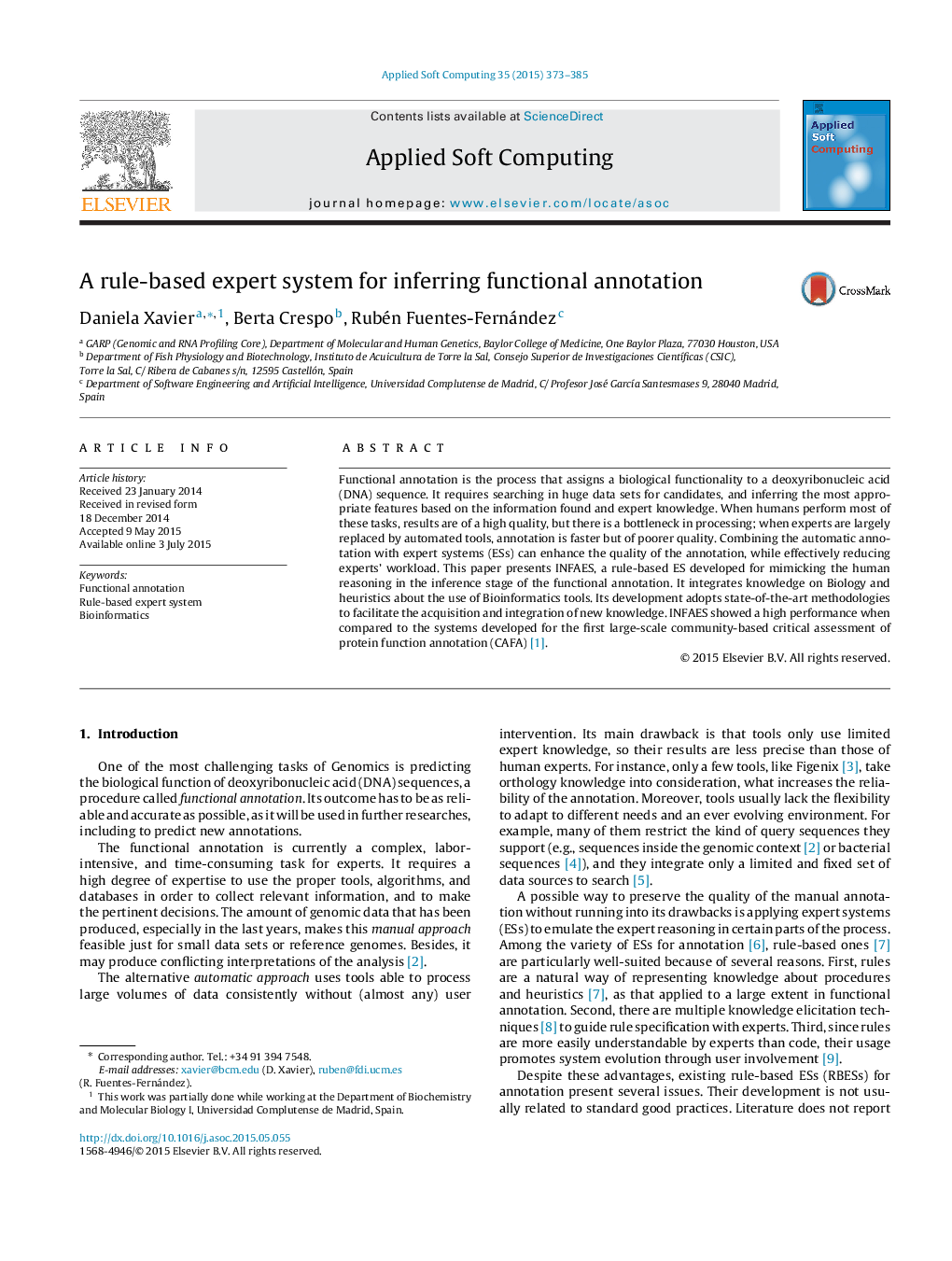| Article ID | Journal | Published Year | Pages | File Type |
|---|---|---|---|---|
| 495173 | Applied Soft Computing | 2015 | 13 Pages |
•Functional annotation aims to predict the biological function of DNA sequences.•Automatic functional annotation is faster but less accurate than the manual one.•INFAES is a rule-based expert system for functional annotation.•INFAES combines biological knowledge with Bioinformatics heuristics.•INFAES outcome is comparable to the best ranked tools in the CAFA experiment.
Functional annotation is the process that assigns a biological functionality to a deoxyribonucleic acid (DNA) sequence. It requires searching in huge data sets for candidates, and inferring the most appropriate features based on the information found and expert knowledge. When humans perform most of these tasks, results are of a high quality, but there is a bottleneck in processing; when experts are largely replaced by automated tools, annotation is faster but of poorer quality. Combining the automatic annotation with expert systems (ESs) can enhance the quality of the annotation, while effectively reducing experts’ workload. This paper presents INFAES, a rule-based ES developed for mimicking the human reasoning in the inference stage of the functional annotation. It integrates knowledge on Biology and heuristics about the use of Bioinformatics tools. Its development adopts state-of-the-art methodologies to facilitate the acquisition and integration of new knowledge. INFAES showed a high performance when compared to the systems developed for the first large-scale community-based critical assessment of protein function annotation (CAFA) [1].
Graphical abstractFigure optionsDownload full-size imageDownload as PowerPoint slide
